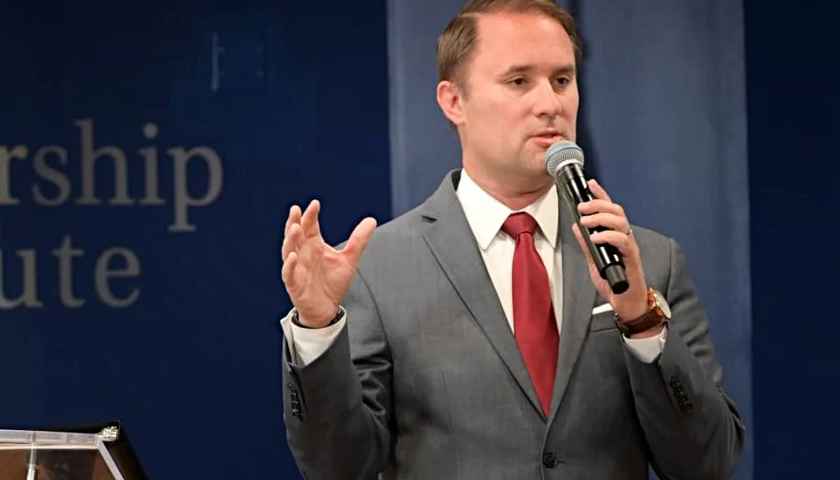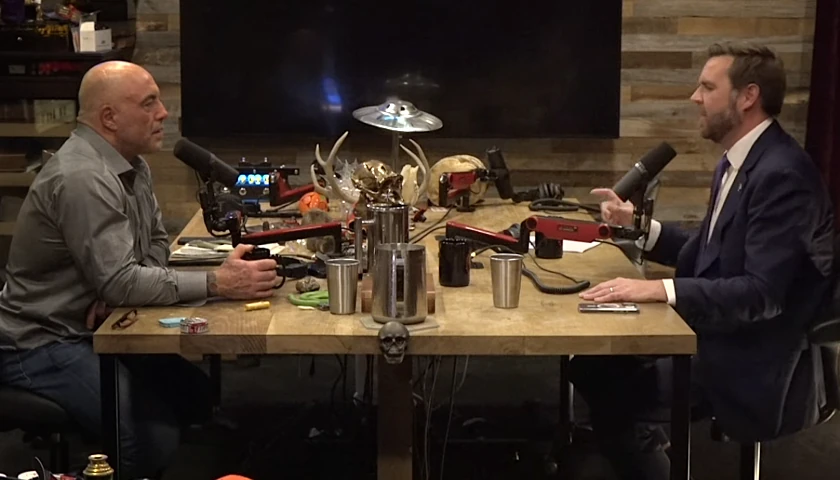Attorney General Jason Miyares determined in a Friday legal opinion the Virginia Retirement System (VRS) is prohibited by Virginia law from making investments based on controversial environment, social and governance (ESG) scores.
In a statement posted to the Virginia Attorney General website, Miyares said Virginians “spent decades working hard” for their retirement, and the commonwealth’s investments must be driven by financial data and not ESG scores as a result.
“Investments must be driven by careful, calculated financial foresight, not clouded by unfounded ESG fads,” said Miyares.
“This Opinion firmly reinforces the Virginia Retirement System’s responsibility and legal obligation to make objective investment decisions free from the sway of social or political agendas. Secure futures require sound economics,” he said.
In his five-page legal opinion, the attorney general first cited Article 10, Section 11 of the Virginia Constitution, which mandates the fund be “administered solely in the interests of the members and beneficiaries.”
Miyares wrote the VRS Board’s duty to the fund’s members and beneficiaries, public employees who work for the commonwealth, means it must exclude third party interests, including ESG policies that proponents argue would provide “a general public benefit” to Virginia.
The attorney general wrote, “it is my opinion that the VRS Board is subject to fiduciary duties that preclude it from basing its investment decisions on ESG policies rather than financial considerations.”
Proponents of ESG scores argue they promote investments in responsible companies, but billionaire Elon Musk described the investment metric as “the devil” after the Philip Morris tobacco company received better ESG score than his Tesla Motors Company.
Why ESG is the devil … https://t.co/uGrH0eBoMs
— Elon Musk (@elonmusk) June 14, 2023
After spending billions to settle lawsuits in the 1990s, Philip Morris achieved its modern ESG score by investing in diversity programs that appear to reflect Diversity, Equity and Inclusion (DEI) principles, according to The Washington Free Beacon, which noted the company “bragged about ’empowering’ female tobacco farmers,” and once “advertised a partnership with “African data scientists.'”
Miyares’ legal opinion was originally requested by Virginia Delegate Nick Freitas (R-Culpeper), who thanked the attorney general for his response in a post to the social media platform X.
Freitas wrote, “The Virginia Retirement System’s responsibility is to serve the people whose accounts they manage…not advance political ideology dressed up as ‘equity.'”
Thank you to @JasonMiyaresVA. The Virginia Retirement System’s responsibility is to serve the people whose accounts they manage…not advance political ideology dressed up as “equity.”https://t.co/K7Dc6aA07n
— Nick Freitas (@NickJFreitas) August 16, 2024
Miyares recently wrote to the Democratic fundraising platform ActBlue after Project Veritas founder James O’Keefe raised allegations of possible fraudulent donations from ghost donors upon discovering hundreds or thousands of donations to Democrats, some totaling tens of thousands, made from commonwealth citizens who seemed unaware of their involvement.
The Star News Network identified similar donors in neighboring Tennessee, where one woman donated $18,234.35 using ActBlue in at least 2,229 separate transactions over less than two years.
Another Tennessee woman donated using ActBlue more than 1,000 times, including 15 donations in one day, ultimately spending more than $29,000. She told Star News she donated the money “because I believe in great leadership at the local, state, and federal levels.”
– – –
Tom Pappert is the lead reporter for The Tennessee Star, and also reports for The Pennsylvania Daily Star and The Arizona Sun Times. Follow Tom on X/Twitter. Email tips to [email protected].
Photo “A.G. Jason Miyares” by Virginia A.G. Jason Miyares.









